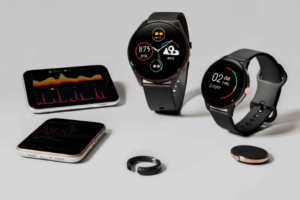Incorporating a short walk after meals can offer a surprising array of health benefits, extending beyond general physical activity. Health experts highlight that even a brief stroll post-meal can significantly impact digestion, blood sugar regulation, and overall well-being. This simple habit can be more impactful than walking at other times of the day for certain health markers.

Aids Digestion and Reduces Discomfort
One of the most immediate and well-known benefits of walking after eating is its positive effect on digestion. Physical movement helps stimulate the stomach and intestines, allowing food to move through the digestive tract more rapidly. Research indicates that even a 10 to 15-minute walk after each meal can reduce common post-meal discomforts such as belching, flatulence, and bloating. In some cases, walking after eating has even been found to be more effective than certain medications for aiding digestion. However, it’s generally advised to keep the intensity low to moderate to avoid stomach upset.

Controls Blood Sugar Levels
Walking after meals is particularly beneficial for managing blood sugar. After eating, blood glucose levels naturally rise, typically peaking within 60 to 90 minutes. Engaging in light walking during this period can help prevent sharp spikes in blood sugar. Studies show that even a short walk of 2 to 5 minutes can lead to lower post-meal blood sugar levels, as muscle activation during walking uses glucose for energy. This benefit is especially significant for individuals with type 1 or type 2 diabetes, as it can help them manage their condition more effectively and reduce the risk of high blood sugar spikes.

Improves Circulation and Heart Health
Regular physical activity, including walking, is crucial for cardiovascular health. Walking after meals can contribute to improved circulation, lower blood pressure, and a reduced risk of heart disease. Consistent post-meal walks can help regulate blood pressure and may positively impact cholesterol levels, including reducing “bad” LDL cholesterol and triglycerides, which are fats that can clog arteries. Meeting the recommended 30 minutes of moderate-intensity exercise at least five days a week can be achieved by incorporating three 10-minute walks after meals.

Supports Weight Management
Walking is a well-established component of a weight management strategy when combined with a proper diet. Walking after meals can contribute to creating a calorie deficit, meaning you burn more calories than you consume. While more intense activities burn more calories, even shorter, more frequent walks can aid in weight loss. Some research suggests that walking immediately after meals may be more effective for weight loss than waiting an hour, potentially by reducing the amount of glucose stored as fat.

Boosts Mood and Mental Well-being
Physical activity, including walking, has a notable impact on mood and mental health. Post-meal strolls can help reduce symptoms of depression and anxiety, lower stress, and enhance overall mental well-being. Walking can stimulate the release of “feel-good” hormones like endorphins and dopamine and can make the brain more sensitive to serotonin. Even a 20-minute walk five days a week can significantly reduce the risk of depression.

Enhances Sleep Quality
Incorporating low-impact activities like walking into your daily routine can contribute to better sleep. Research indicates that individuals who take more steps daily tend to report higher quality sleep with fewer nighttime awakenings. Walking after a meal can help regulate circadian rhythms and promote better digestion, both of which are conducive to more restful sleep. Low to moderate intensity walking can enhance the body’s natural sleep-wake cycle, facilitating falling asleep faster and experiencing deeper, more restorative sleep.






